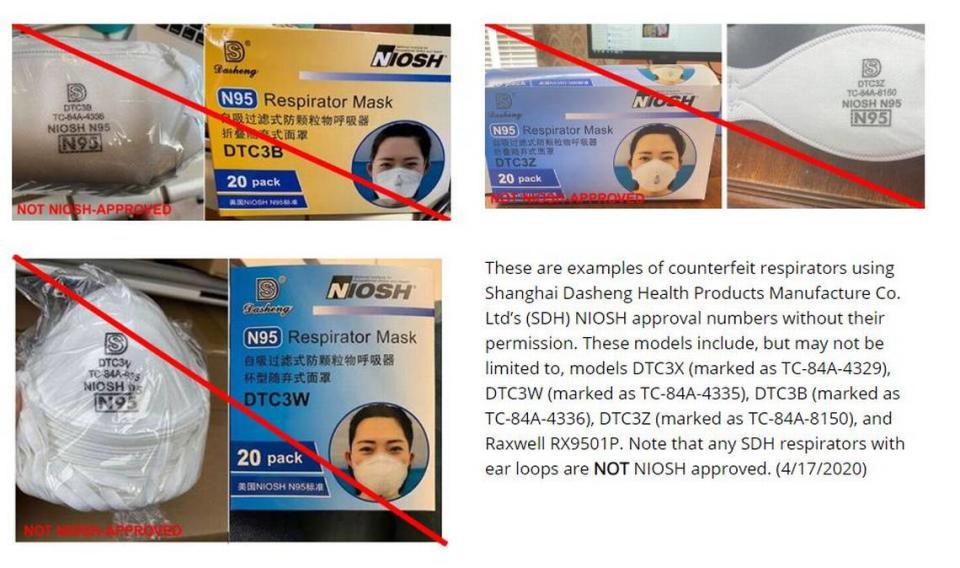Don’t be fooled. Here’s how to spot a fake N-95 respirator mask, CDC says
With COVID-19 cases continuing to trend in the wrong direction, personal protective equipment is in high demand.
Cloth masks are recommended for personal use during the pandemic, according to the Centers for Disease Control and Prevention, but some consumers are seeking a higher level of protection provided by N-95 respirators.
The medical-grade masks, which “filter at least 95% of airborne particles,“ are hard to come by, and experts are warning buyers to beware of fakes sold online. So what’s the best way to avoid being duped?
First, the CDC says to be sure the mask is approved by the National Institute for Occupational Safety and Health, or NIOSH. Only authentic N-95 respirators are.
Using a bandana as a COVID-19 face mask? You might want to reconsider, video shows
“Counterfeit respirators are products that are falsely marketed and sold as being NIOSH-approved and may not be capable of providing appropriate respiratory protection to workers,” according to the CDC. “When NIOSH becomes aware of counterfeit respirators or those misrepresenting NIOSH approval on the market, we will post them [on our website] to alert users, purchasers, and manufacturers.”
N95s are the most common type of particulate filtering respirator and will have an approval number on either the facepiece filter or the headband, health experts say. The respirators itself shouldn’t have any markings.

Other ways to spot a fake respirator mask include:
No NIOSH markings
NIOSH spelled incorrectly
Presence of decorative fabrics or add-ons, such as sequins
Facepiece has ear loops instead of a headband
Claims that it’s approved for children (NIOSH doesn’t approve any type of respiratory protection for children)
Medical-grade masks are essential for healthcare workers on the front lines of the virus, which, as of Thursday, has infected more than 3 million people across the the U.S. and killed over 132,000, according to Johns Hopkins University. Earlier this year, the CDC issued guidance for the use of cloth face masks and urged the public to preserve the respirators for doctors, nurses, and other medical workers.
The use of both are encouraged to help prevent the spread of COVID-19, coupled with safe social distancing and frequent hand washing, health experts say.
The CDC also has a running list of NIOSH-approved N-95 respirators that can be found here.
‘Catch and kill’ air filter could destroy coronavirus instantly, Texas experts say

